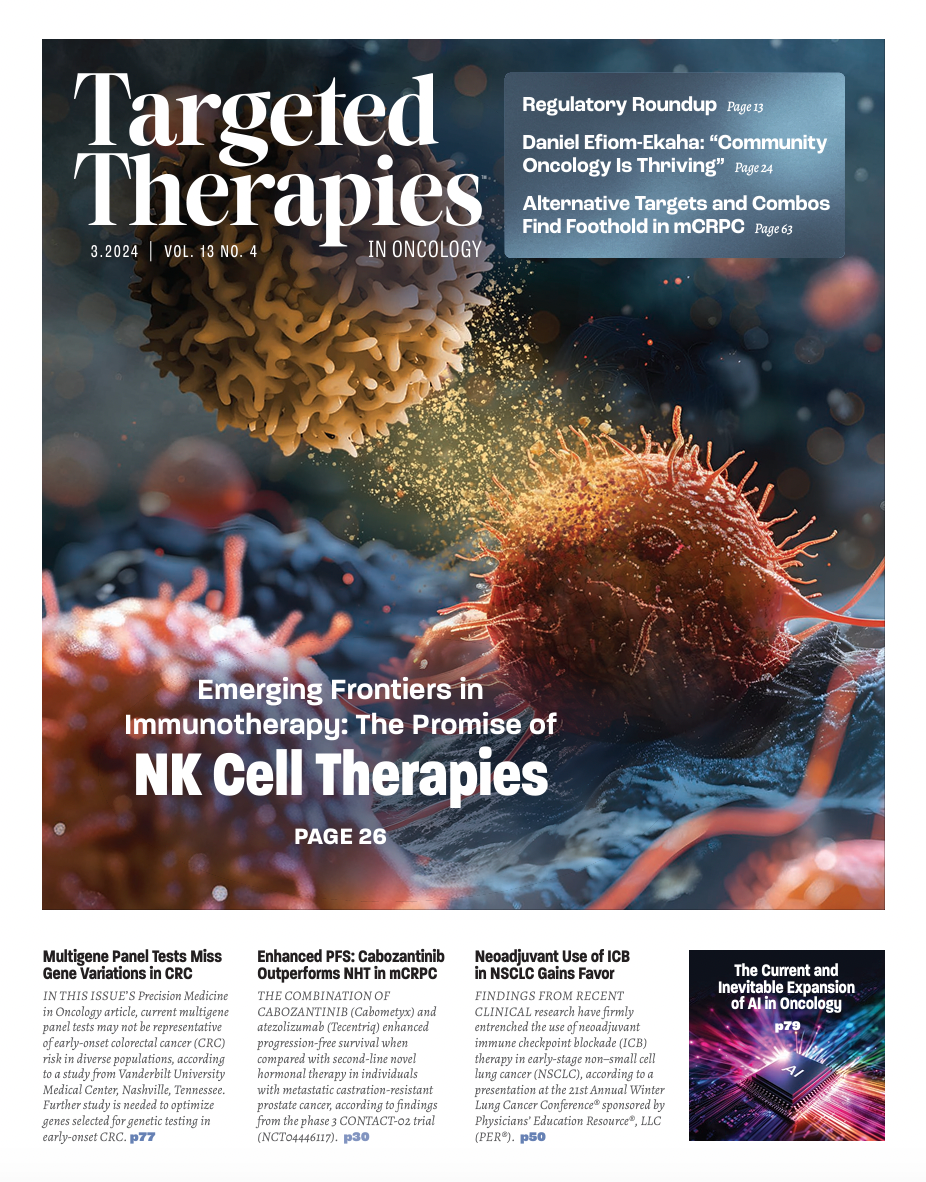Navigating Challenges Associated With CAR NK-Cell Therapy
Until recently, the CAR gene modification has been focused on T cells, thought for decades to be the main effector population for controlling cancer or for harnessing cancer immunotherapy.
Robert L. Ferris, MD, PhD
Director
Hillman Cancer Center
University of Pittsburgh Medical Center
Pittsburgh, PA

In this issue of Targeted Therapies in Oncology, an update on chimeric antigen receptor (CAR) natural killer (NK)–cell therapy describes recent advancements in this transferred cellular immunotherapy using NK cells as a vehicle for tumor targeting and antitumor activity, driven by the gene-transferred CAR expression. Until recently, the CAR gene modification has been focused on T cells, thought for decades to be the main effector population for controlling cancer or for harnessing cancer immunotherapy. It has been known that the number and activity of NK cells in patients with cancer have a prognostic impact on other immune cells that may be useful as a proximal event to trigger broad downstream immunity, which may also incorporate and expand T lymphocytes in the body. NK cells may have certain advantages over T cells as they are highly lytic and have less regulatory or suppressive function than some T-lymphocyte populations. However, they have a lower degree of memory and possibly reduced longevity vs T lymphocytes but are more active as killers.
Nevertheless, whether the adoptive cell therapy is harnessing T cells, NK cells, or dendritic cell vaccines, all of which are in the clinic, the production of these cellular therapies has been restricted to highly specialized academic centers or commercial pharmaceutical entities. This increases the complexity, wait time, and potential costs, because shipping of harvested cells and eventual cell therapy products adds time.
Day-to-day monitoring of the cell product on site is not possible. However, recent self-contained cell therapy instruments are becoming available that are more portable and do not require as much investment to operationalize. This may democratize the availability and exporting of cell therapy manufacturing to permit more cost-effective, on-site production, when production and operational logistics can be replicated using these machines.
As the report in this issue indicates, the field of self therapies was triggered with CAR T cells, but now different modulators, gene transfer and CAR targets, distribution, and production may save time as well as costs to the health care system. This currently expensive ($400,000-$500,000 per patient) CAR cell therapy–type product could be done for $100,000 or less when systematized in portable, individual machines with less up-front physical plant requirements than a 5- to 10-room GMP facility. It is exciting to see the science and operations rapidly advance to enable more exciting preclinical ideas to be tested and become established.

Survivorship Care Promotes Evidence-Based Approaches for Quality of Life and Beyond
March 21st 2025Frank J. Penedo, PhD, explains the challenges of survivorship care for patients with cancer and how he implements programs to support patients’ emotional, physical, and practical needs.
Read More
Survivorship Care Promotes Evidence-Based Approaches for Quality of Life and Beyond
March 21st 2025Frank J. Penedo, PhD, explains the challenges of survivorship care for patients with cancer and how he implements programs to support patients’ emotional, physical, and practical needs.
Read More
2 Commerce Drive
Cranbury, NJ 08512
All rights reserved.